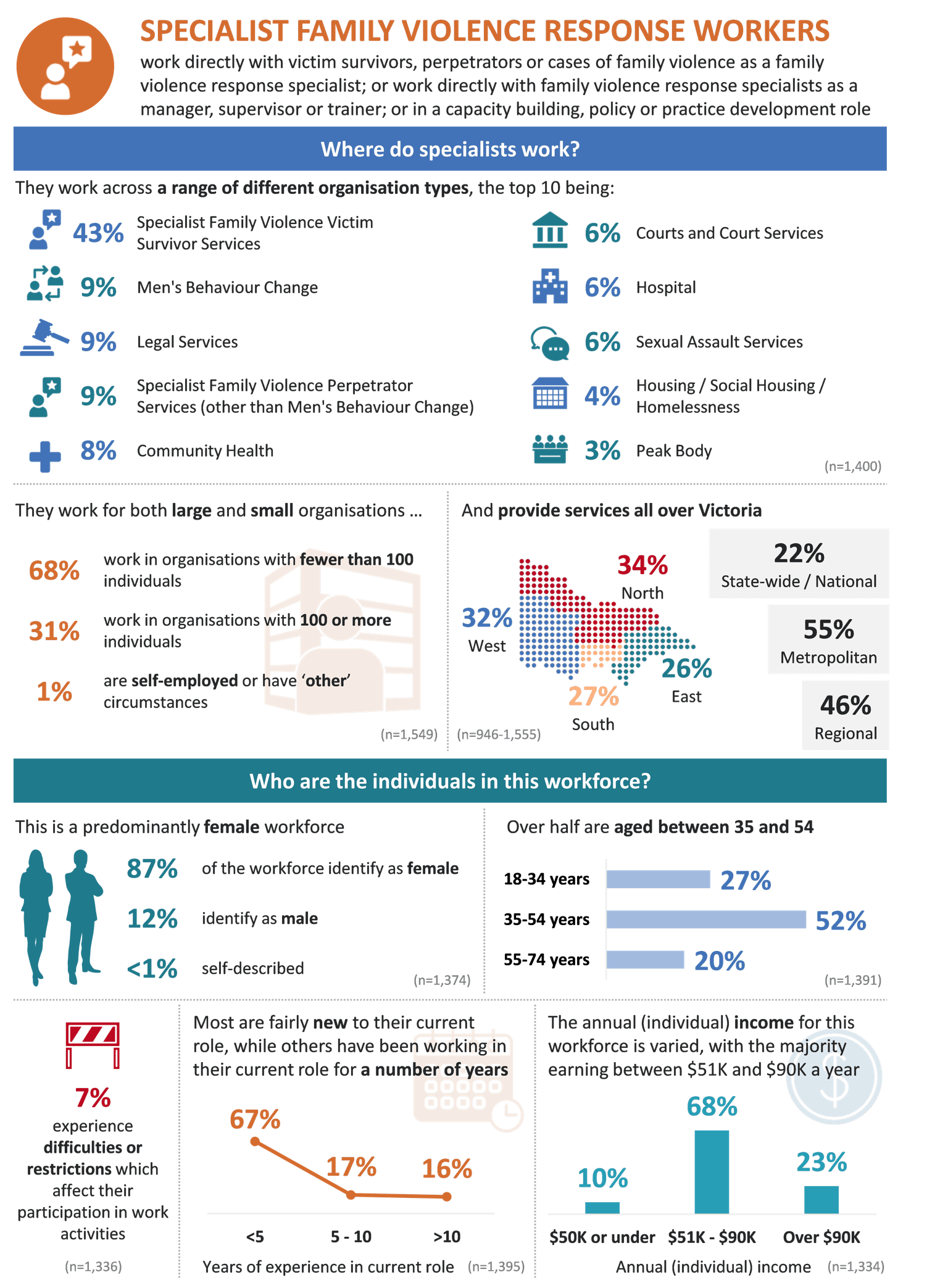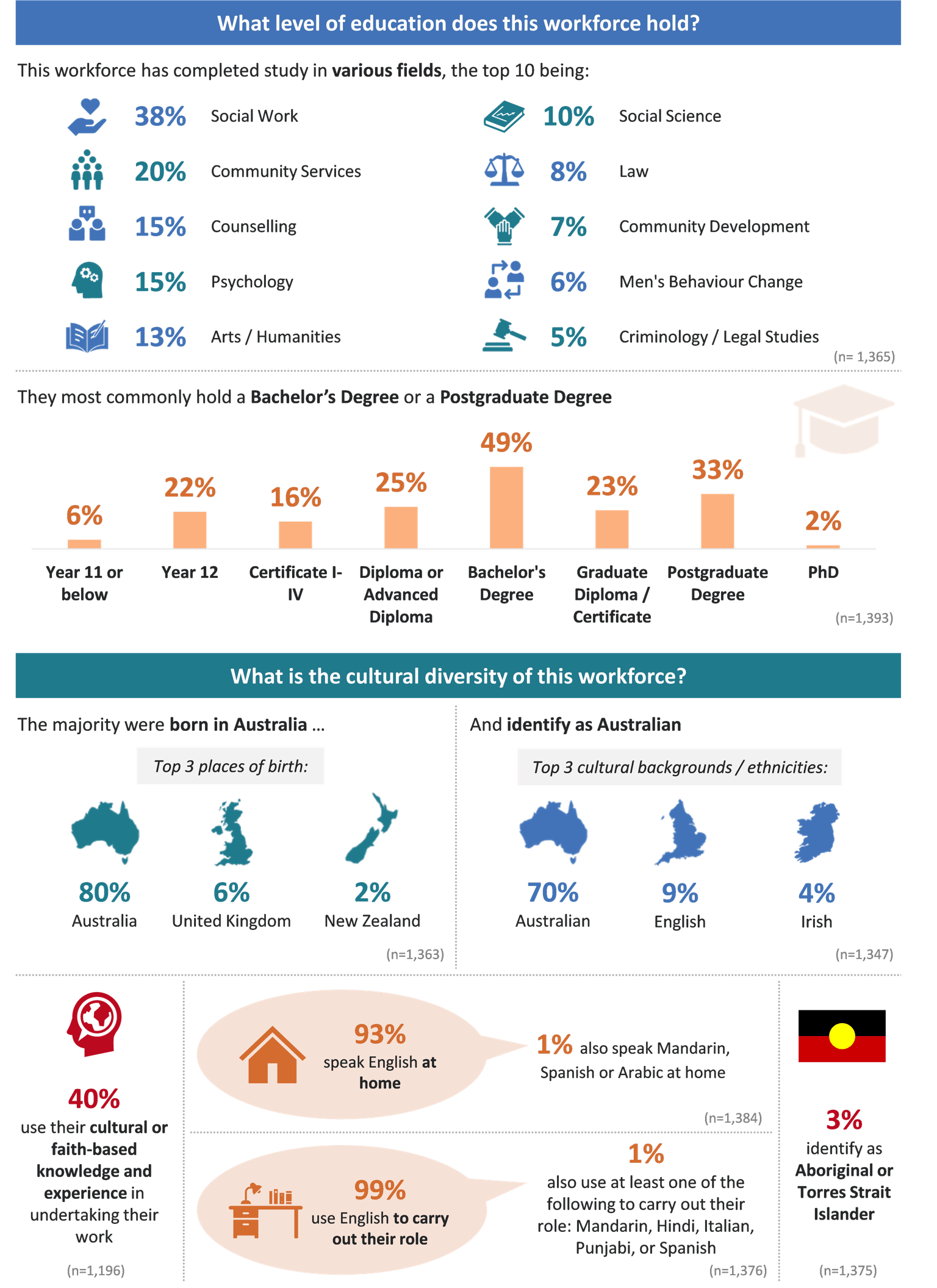Profile of respondents

Where do specialists work?
- 43% Specialist Family Violence Victim Survivor Services
- 9% Men's Behaviour Change
- 9% Legal Services
- 9% Specialist Family Violence Perpetrator Services (other than Men's Behaviour Change)
- 8% Community Health
- 6% Courts and Court Services
- 6% Hospital
- 6% Sexual Assault Services
- 4% Housing/Social Housing /Homelessness
- 3% Peak Body
Most (68%) work in organisations with fewer than 100 individuals
Services are provided all over the state with people working in roles:
- 22% state-wide/national
- 55% metropolitan
- 46% regional
This is a predominantly female workforce (87%)
Over half are aged between 35-54 years (52%)
7% experience difficulties or restrictions which affect their participation in work activities
Two thirds (67%) have been in their role for fewer than five years.
- Download 'Profile of respondents '
Profile of specialist family violence workforce respondents

The main areas in which specialist respondents have completed study include Social Work (38%), Community Services (20%), Counselling (15%), Psychology (15%), Arts/Humanities (13%), Social Science (10%), Law (8%), Community Development (7%), Men's Behaviour Change (6%), Criminology/Legal Studies ((5%).
Roughly half (49%) of respondents have completed a Bachelor's Degree.
80% of respondents were born in Australia, with 70% identifying as Australian.
3% of respondents identify as Aboriginal or Torres Strait Islander.
40% of this workforce use their cultural or faith-based knowledge and experience in undertaking their work.
- Download 'Profile of specialist family violence workforce respondents '
Updated